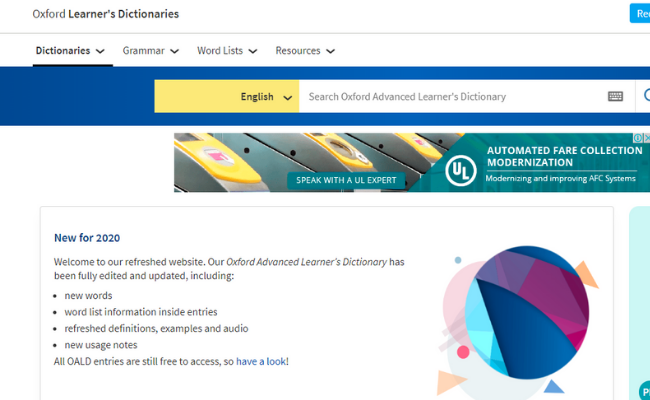Oxford Dictionary 10th Edition: 26 New Indian English Words onboard

The 10th release of the Oxford dictionary, which was released on 23rd January, has 384 Indian English words and includes more than 1,000 new words, for example, chatbot, fake news and microplastic and so on.
The dictionary centers around language change and its development as the years progressed, and has guaranteed that the language and models utilized in the new version are appropriate and modern with the times, said Oxford University Press.
The new version accompanies interactive online help through the Oxford Learner’s Dictionaries app and website. The site incorporates modern features, for example, sound video instructional exercises, video walkthroughs, self-study exercises, and upgraded iWriter and iSpeaker devices. More information can be obtained on https://www.oxfordlearnersdictionaries.com/ .
“This release has 26 new Indian English expressions of which 22 figures in the printed lexis. The other four are in the computerized adaptation,” said Fathima Dada, Managing Director (Education Division) at OUP.
As per OUP, the new release gives better, precise and justifiable definitions with models, utilization notes and extra assets to enable the student to utilize the correct word in the correct setting.
“Relevancy and regular use are the principle criteria for enrolling new words. We examine the globe for words that are regularly utilized by individuals while communicating in English. At that point these words experience a thorough testing process,” Fathima Dada added.
The Oxford Advanced Learner’s Dictionary, she stated, has been reevaluating itself for about eight decades, envisioning the developing learning prerequisites of students.
“The tenth release likewise is outfitted with a solid computerized emotionally supportive network, including an application,” she said. It is furnished with a few digital tools. With iSpeaker, students can get help planning for talking tests and introductions. With iWriter, students can design, compose and survey their composed work. Content Checker permits the instructor to check any content against the Oxford 3000, 5000, and OPAL (Oxford Phrasal Academic Lexicon) composed word list.
Features available through online premium access incorporate exercise plans, worksheets, video walkthroughs, and study hall and self-study exercises. With the OALD application, one can discover 86,000 words, 95,000 expressions, 112,000 implications, and 237,000 examples.
The lexicon, which traverses 77 years, was initially distributed in Japan in 1942 and was first brought out by OUP in 1948. The student’s lexicon depends on the first estimations of its maker, Albert Sydney Hornby, whose point was to help language students overall comprehend the importance of English words.
